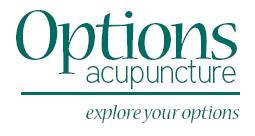
We’ve probably all heard motherly advice at some point reminding us to bundle up in cold weather so we don’t “catch a cold”, or hear grandpa accurately predict a storm when his hip starts aching. Or how about getting a case of the winter weather blues? Even in the western world we recognize a relationship with nature in terms of environmental conditions. Changes in temperature, sunlight, barometric pressure, and humidity all play a role in this relationship.
When it comes to the weather and our health, many in the west automatically think of how season changes and extreme weather can aggravate symptoms of asthma and allergies, but weather-related health concerns go far beyond seasonal allergies and asthma. Changes in barometric pressure can affect joints (like Grandpa’s hip), and cause headaches.
Headaches can also be caused by heat and dehydration, so summer adventurers beware (bring lots of water!). High humidity can intensify heat too as it limits our ability to cool down through sweating, potentially leading to hyperthermia and heat stroke.
Cold weather can tighten muscles causing body pain. It also constricts blood vessels leading to an increase in blood pressure and increased risks of heart attack and stroke. While blood pressure tends to be higher in the winter, any temperature extreme, hot or cold, can affect heart function.
Sunlight is another aspect of weather that has a lot of influence over our health. Seasonal Affective Disorder (SAD) is often associated with the colder, darker fall and winter months. The reduced sunlight alters our melatonin and serotonin levels, potentially leaving us with disruptions in sleep and mood.
Ancient Chinese Medical texts describe a similar relationship between humans and their environment, though the wording and understanding of the nature of the environmental conditions differs slightly.
In TCM there are 5 main “climates” or environmental influences related to our health.
These are: COLD, HEAT, WIND, DAMP, DRYNESS
(summer heat, associated with late summer, is actually considered a 6th climate)
These potential causes of illness described in Chinese Medicine sound like weather patterns themselves and are considered external influences in origin but can penetrate to have effects on the body and create what we can think of as internal weather. We can also be more prone to their influence based on our constitution and lifestyle, (and can even manifest these ‘climates’ internally without external exposure).
Any extremes with these various conditions can allow pathogens to enter, if our self-protective energy and efforts are weak, and leave us vulnerable to infections, such as with colds/flus.
They can also go deeper in the body to directly affect the organs, with symptoms presenting throughout the body in the respiratory, digestive, urinary, reproductive, nervous, musculo-skeletal systems and skin.
Wind is understood as the biggest trouble-maker as it often combines with other influences to wreak havoc in the body. It can affect the joints, bring on skin rashes, or cause a spell of dizziness, among other issues. Cold can kill the digestive fire; combine that with a damp invasion and you can experience bloating and/or nausea. Heat and dryness, on the other hand, can injure the blood and yin fluids of the body causing symptoms such as fever, restlessness, scanty painful urination, brittle hair and excessive thirst.
Chinese medicine takes a more preventative approach to these issues by addressing imbalances before they express as more severe symptoms. There is also a focus on the integrity of the defensive energy of the body as well as the body’s ability to handle transitions with stability. Knowing our bodies will be continuously exposed to the challenge of seasonal weather changes and potential extremes of climate conditions, we can prepare accordingly.
Don’t wait for an internal weather emergency to call for an appointment, get in asap to strengthen your resilience to external weather conditions, balance out your internal climates and assist you in transitioning season to season with ease and well-being!
Resource to expand on climates: https://tcmwiki.com/wiki/six-climatic-factors





